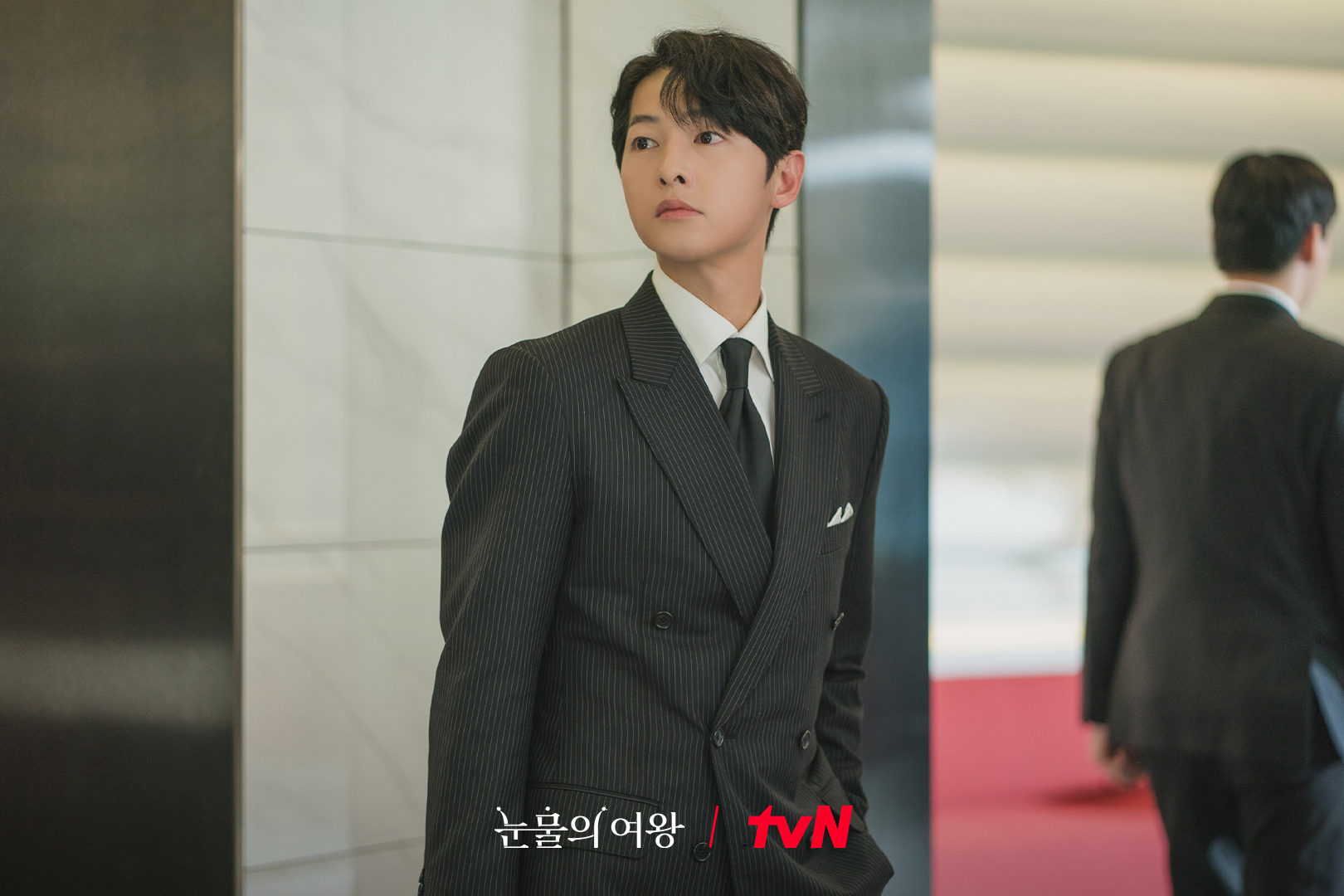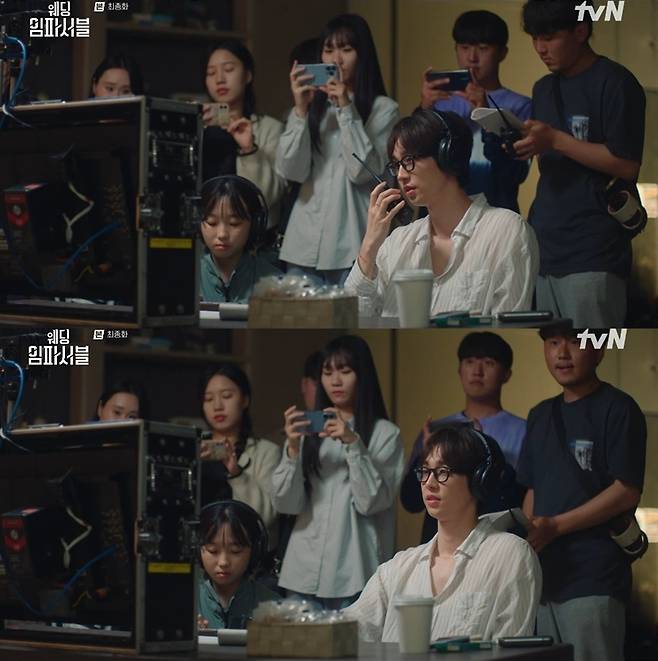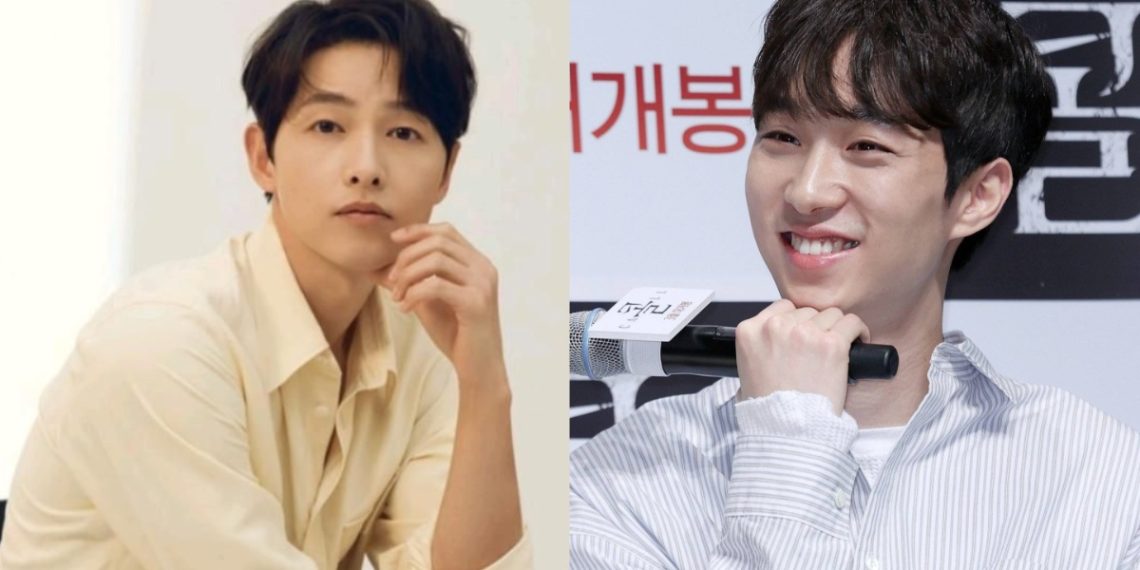Song Joong-ki made a striking appearance in episode 8 of tvN’s “Queen of Tears”, aired on March 31st, portraying Vincenzo, the lawyer of Hong Hae-in (played by Kim Ji-won). This cameo delighted viewers, with Song Joong-ki bringing back the beloved Vincenzo persona from his previous role.
Clad in an elegant suit and exuding charisma, Song Joong-ki injected a special aura into the drama. His sharp and engaging dialogue as Hong Hae-in’s lawyer added an exciting layer to the storyline.
The moment Song Joong-ki appeared on screen, viewers were treated to humorous references to the actor’s extensive filmography, including notable works like “Descendants of the Sun” and “Space Sweepers”. This nod to his repertoire and his seamless integration into the narrative sparked the episode’s appeal, leading to a remarkable 16.1% viewer rating peak.

Mixed Reactions to Lee Chung-Hyun’s Appearance in “Wedding Impossible”
On the contrary, Lee Chung-hyun’s cameo appearance in the final episode of tvN’s “Wedding Impossible” on April 2nd garnered mixed responses. As the real-life boyfriend of the drama’s female lead, Jeon Jong-seo, Lee Chung-hyun portrayed a director character. Known for his successful directorial ventures like “Bargain” and “The Call”, Lee Chung-hyun’s brief stint as a director in the series sparked a lively debate among viewers.
While some viewers found joy in seeing Jeon Jong-seo’s real-life partner making a cameo, others expressed concern over the impact of the drama’s immersion. Criticisms emerged regarding the blending of reality with fiction, questioning if the inclusion of the actress’s boyfriend was an attempt to create personal memories within the storyline.

Conversely, supporters of the cameo argued that Lee Chung-hyun’s appearance added an amusing twist to the narrative and showcased his versatility as both a director and an actor.
Song Joong-ki’s cameo in “Queen of Tears” left a significant positive impact on viewers, enhancing the drama’s appeal and storyline, while Lee Chung-hyun’s appearance in “Wedding Impossible” generated contrasting reactions, reflecting the varied perspectives among audiences regarding the integration of real-life relationships into fictional narratives.





